Cassandra Fritz, MD selected for American Gastroenterological Association’s FORWARD Scholars program
Introducing the 10 emerging leaders selected as AGA FORWARD Scholars (Links to an external site)


Cassandra Fritz, MD selected for American Gastroenterological Association’s FORWARD Scholars program
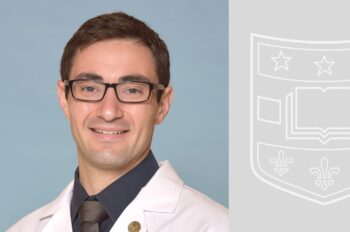
Vlad Kushnir, MD, has accepted the position of Director of Interventional Endoscopy effective December 1, 2021.
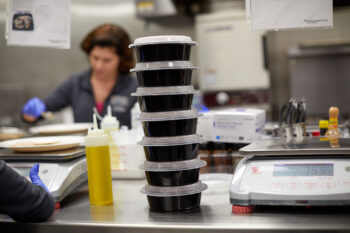
Inflammation and metabolic disorders are deeply intertwined. For example, people with inflammatory conditions such as Crohn’s disease and psoriasis are at risk of developing metabolic disorders such as insulin resistance and diabetes. However troubling that connection might seem, it also might point to some promising news.
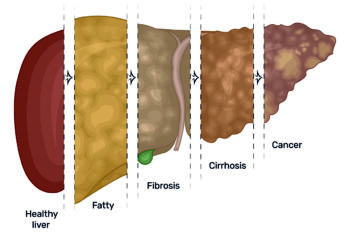
The United States is facing an epidemic of liver disease linked to obesity. Cases of nonalcoholic fatty liver have more than doubled in the past two decades, now affecting around one quarter of the country’s population. The condition leads to inflammation and scarring in the liver, similar to that caused by alcohol abuse, and increases […]
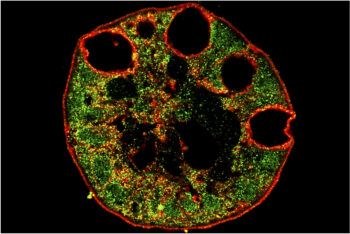
No evidence so far indicates that food or drinks can transmit the virus that causes COVID-19, but new research at Washington University School of Medicine in St. Louis suggests that people with problems in the upper gastrointestinal (GI) tract may be vulnerable to infection after swallowing the virus.

An international research network of physicians and scientists is launching a clinical trial to evaluate whether the vaccine for measles, mumps and rubella (MMR) can protect front-line health-care workers against infection from SARS-CoV-2, the virus that causes COVID-19. The trial aims to enroll up to 30,000 health-care workers globally.

The newly formed Division of Physician-Scientists at Washington University School of Medicine in St. Louis has selected five physicians for its inaugural Dean’s Scholar Program, which provides up to two years of financial support and mentorship to aspiring, early-career physician-scientists, along with dedicated time for conducting laboratory research.
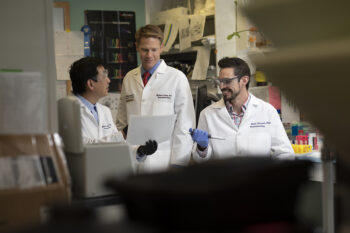
Researchers at Washington University School of Medicine in St. Louis appear to have discovered a way to make radiation therapy for colorectal cancer more effective by inhibiting a protein found in cancer cells in the gut. The approach also helps protect healthy tissue from the negative effects of radiation.
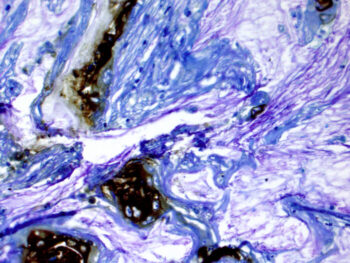
Pancreatic cancer kills more than 45,000 people in the U.S. each year, mostly due to the fact that it is detected too late for surgery to remove and halt the spread of the cancer. Cysts in the pancreas sometimes develop into the invasive cancer, depending on the type of cyst, but such growths often are […]
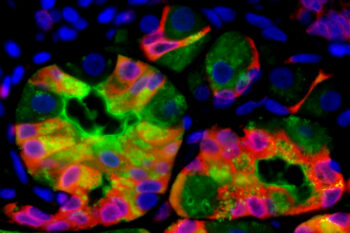
Recent research at Washington University School of Medicine in St. Louis demonstrated that mature cells in the stomach sometimes revert back to behaving like rapidly dividing stem cells. Now, the researchers have found that this process may be universal; no matter the organ, when tissue responds to certain types of injury, mature cells seem to […]